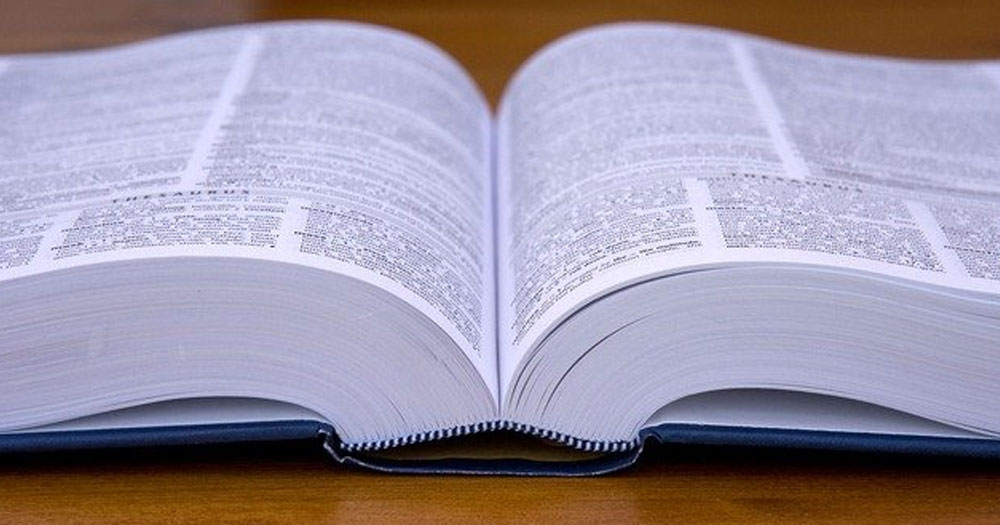Dictionary.com has announced that it will be adding a grand total of 566 new words to its site in its latest revision, including ‘polysexual’, ‘autosexual’, ‘amalgagender’ and ‘gay marry’.
The latest ‘word dump’ from Dictionary.com comes as part of the site’s commitment to keep up with the amorphous and ever-expanding nature of the English language – a commitment that is coming amongst dictionaries worldwide.
Several of the new additions to the site focus on terminology related to gender, non-traditional relationships and sexual identity. Some of these new words include:
Polysexual: Noting or relating to a person who is sexually attracted to people of various genders, but not necessarily to people of all genders.
Autosexual: Noting or relating to a person who primarily feels sexual attraction to and desire for themselves, as opposed to other people.
Amalgagender: Noting or relating to a person whose gender identity is linked to or impacted by the fact that they are intersex.
Gay marry: To marry a person of the same gender.
John Kelly, Vice President of Editorial at Dictionary.com, told NBC News that the new terms relating to identity and relationships are the result of rapidly changing terminology surrounding the subjects over the last 15 years.
“Gender and identity have been particularly dynamic, and productive areas of language change in the past 15 years or so.
“Whether it be socially or medically, there is a vocabulary component that is emerging, breaking through into the mainstream, that people need to know that they’re going to encounter.
“Language really is a lightning rod,” Kelly continued, recognising that the addition of the new terms might come at the cost of contention and strife.
“All of a sudden it can feel, when these new words get announced, that there’s an agenda behind it. I want to be clear: There isn’t an agenda; there is documentation.”
The latest ‘word drop’ from the dictionary website similarly included terms such as ‘nepo baby’, ‘greenwashing’, ‘chatbot’, ‘boxbraids’ and ‘coffee nap’.
Similarly, Dictionary.com lexicographers have worked to remove gendered definitions from their site. For example, instead of using the phrase ‘himself or herself’ in a definition, the site now uses gender-neutral they/them pronouns, regardless of the word being defined.
Lexicographer K.E Callaway shared their thoughts on these changes, saying, “This change was made for two reasons: inclusivity and usage. On the inclusivity side, ‘his or hers’ does not included people who use other pronouns.
“In terms of usage, ‘they’ is simply much more common as a generic pronoun than ‘he or she’, including in spoken and all but the most formal types of written English.
“By making this change, we have made our entries more similar to how people actually speak and write, hopefully making the entries more natural-sounding – and thus more accessible to readers,” Callaway concluded.
© 2023 GCN (Gay Community News). All rights reserved.
Support GCN
GCN is a free, vital resource for Ireland’s LGBTQ+ community since 1988.
GCN is a trading name of National LGBT Federation CLG, a registered charity - Charity Number: 20034580.
GCN relies on the generous support of the community and allies to sustain the crucial work that we do. Producing GCN is costly, and, in an industry which has been hugely impacted by rising costs, we need your support to help sustain and grow this vital resource.
Supporting GCN for as little as €1.99 per month will help us continue our work as Ireland’s free, independent LGBTQ+ media.
